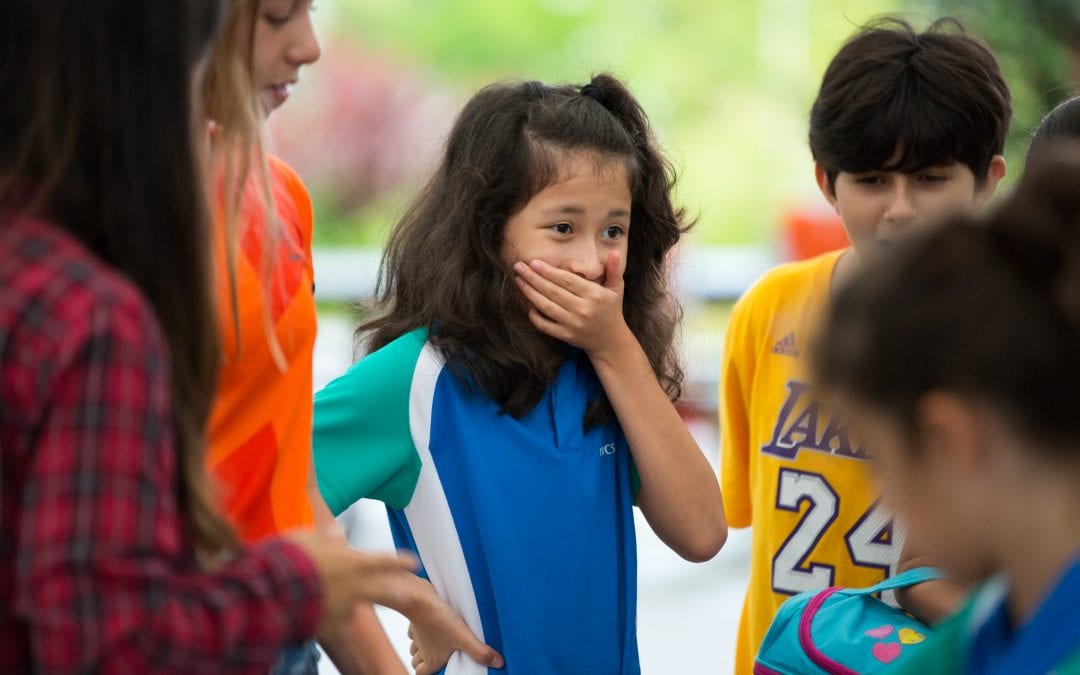In my first 7 weeks at Dover I have had the good fortune to work with many teams in different parts of the school and it’s been absolutely fascinating. I’m discovering lots of exciting work that is going on, often behind the scenes. I am writing this post, therefore, to introduce you to what is a hugely significant but perhaps somewhat misunderstood initiative that is now in its second year at Dover.
Our UWCSEA student body speak nearly 70 languages. Apart from helping to build cultural identity; supporting mother tongue development enhances students’ cognitive development and leads to increased academic attainment more generally. As a UWC we recognise the value of linguistic diversity, and yet until relatively recently, we had been unable to offer the level of support that we wanted.
This situation has now changed.
The UWCSEA Home Languages Programme offers a wide range of languages and is one of the most structured and sophisticated programmes in Singapore. It is for students who want to maintain a language spoken at home but who do not study this language as part of the academic curriculum during the school day. Students in K1-11 are taught in mixed age, home language classes of 3-6, following a rigorously planned and highly individualised programme, by a team of 23 highly qualified specialist language teachers.
Thanks to very positive feedback after the first year, and high demand from parents, we now have 230 students enrolled in the programme, and expect this to grow in the future. Several parents report selecting UWCSEA over our competitors precisely because of our commitment to developing this programme.
Here are some recent quotes from parents in our community:
“My wife and I would like to thank the UWC team on helping families by starting up the Home Language Programme. It seems to be growing in popularity and that’s a great endorsement. Both our children speak Spanish at home with my wife, however, neither had taken any formal lessons, and needed a lot of help with writing. Last year they both sat the Spanish examination from the Cervantes Institute, I believe three kids were registered from UWC. Last week we got the news that both boys passed and will work on advanced their Spanish. For many overseas families, it’s tremendously important to feel confident in their home language. Having that supportive environment within the four walls of UWC is a huge plus for families such as ours. To that end, I wanted to thank Pilar and the school for starting the Home Language initiative”
“I am writing this note to say that I am very pleased with my child’s Hindi teacher. She is doing all the right things to make my child interested and motivated to learn Hindi. I am sure there is a lot of hard work that has been put by both the Home Language Teaching team as well as the Hindi teacher, so thank you from a satisfied parent!”
“Thank you very much for your kind support and consideration to my child. I am very grateful and amazed that such keen attention can be extended to an individual student especially in a big school like UWC. I am really impressed with the Home Languages Programme.”
“We are really excited to have the Home Language Programme at UWC. Thank you for the great news. We appreciate your support and effort to make this happen! ”
FAQ
What languages are currently offered?
11 languages: Bahasa Indonesia, Danish, Dutch, French, German, Hebrew, Hindi, Italian, Japanese, Portuguese, Spanish.
Why are children of different ages in the same class?
Students are grouped according to proficiency rather than age. The programme is individualised so each child is provided with age-appropriate activities.
Why are classes so small?
The HLP is an individualised programme, so classes are capped at 6 to keep planning manageable.
How are parents involved?
As one or both parents speak this language with their children at home, parents play a central role in the success of this programme. They are fully involved so that they can reinforce the learning.
Are HLP classes just like conversation classes?
No. The students get ‘conversation’ when they speak the language at home. The HLP aims to do much more: such as supporting the acquisition and consolidation of academic language and grammar; and the development of reading comprehension and writing production skills for a wide range of literary to media-based texts.
How is HLP linked to language learning later on?
The HLP is a stepping stone for students who move into a First Language Class as part of the academic curriculum in Middle or High School (this includes Dutch, French, German, Hindi, Japanese, Spanish, Self-Taught) or they can continue their home language development through these non-examination classes. It ultimately supports those who aim to study for a Bilingual Diploma.
Where and when do HLP classes take place?
Many of you have HLP classes taking place in your classrooms. We appreciate that this may be inconvenient when you want to work there. So thank you for your support here. The classes occur during lunch times and after school. Please help your students to reach their HLP lesson on time.
How can I support my students who do HLP?
Do ask your students if any of them do HLP and encourage them to share what they are learning. The learning that happens in all classes is indirectly supported by the HLP.
Who teaches HLP?
The HLP teacher team comprises 23 specialist language teachers. Many are new to our community. Please make them feel welcome when you meet them.
Thank you to everyone for direct and indirect ways in which you are supporting this flagship UWC programme. A special thank you to Pilar, our incredible Head of Home Languages. Without her energy, commitment and charm this programme would not have the reputation that it does.

